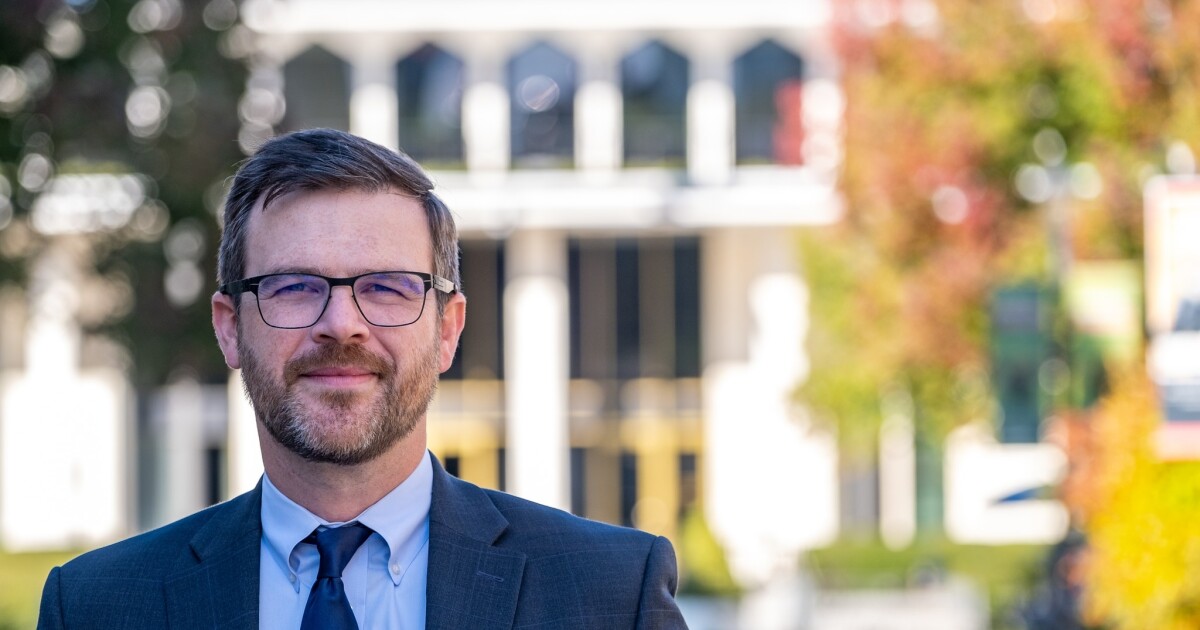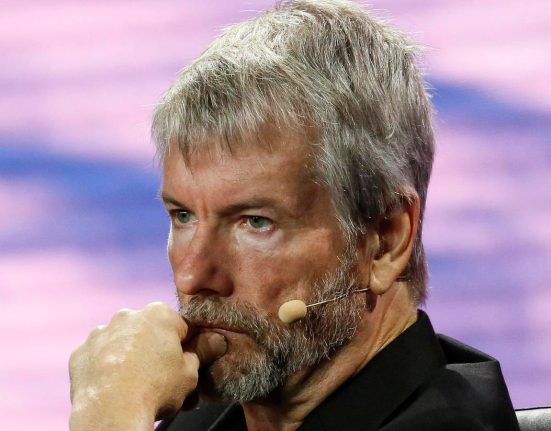The N.C. House recently passed a bill to allow the state treasurer to invest a portion of state pension funds in cryptocurrency and other digital assets.
First-term Rep. Mike Schietzelt, R-Wake, made the case for the bill on the House floor, amid concerns from state employees and others who worry that Bitcoin and other cryptocurrencies are too risky. Schietzelt is an attorney and Marine Corps veteran who won a competitive district previously held by Democrats last year.
Schietzelt spoke with WUNC’s Colin Campbell on the WUNC Politics Podcast about the advantages of cryptocurrency investments and the risk concerns raised by opponents. Schietzelt also discussed his “open enrollment” proposal to let families choose any school in their district, and why new abortion restrictions are unlikely this year.
This conversation has been lightly edited for brevity and clarity.
One of the arguments we heard against the bill is that cryptocurrency is too risky to allow future treasurers — who might not be quite as skilled at investing as our current treasurer Brad Briner — to go and make these decisions on their own. Is there a risk element to consider in what we allow future treasurers to do?
“I understand the concerns about volatility, but if you look at what cryptocurrency — Bitcoin in particular — has done, it has gone up and had a higher ceiling, and then it’s had a floor, and then it’s gone up again, and the ceiling has been higher, and then it’s dropped again and the floor has been lower. The trend line is up.
“We need to allow sophisticated investors, like Treasurer Briner, and like the advisory board that he’s trying to put together … and give these experts an opportunity to weigh in and decide, is this really in the best interest of the people of North Carolina?”
What changed in this bill from when you first filed it, to the bill that passed the House, to address some of those concerns that were out there?
“The biggest thing that changed, in terms of the criticism that it received, was we lowered the cap from 10% of these funds to 5% that the treasurer could invest (in digital assets). State employees had some concerns about it. We wanted to work with them to say we’re not trying to gamble with anybody’s money. We’re just trying to put the state in a healthier position longer term.”
Why include NFTs (non-fungible tokens) in this bill as part of the digital assets that could conceivably be part of the pension fund investments?
“It goes back to not artificially limiting what these experts can do right now. Of the cryptocurrencies that are out there, Bitcoin is the asset that most people are interested in, and I think it’s probably the best investment. You’re creating a little bit of agility within the treasurer’s office to be able to move from one asset to another asset, if the use case is there. But again, there are significant guardrails in the bill.
“If the treasurer were to step out and invest in a Bored Ape NFT, I think people would rightly be concerned. Our treasurer is Brad Briner, not Justin Bieber (who lost money in NFTs). I trust him and the people that he is is going to put into these advisory board positions to do what is in the best interest of North Carolinians.”
Another bill you filed this session (a version to study the idea passed the House) would create an open enrollment process for public schools, allowing families to choose pretty much any school within their school district. What would be the advantage to taking this approach statewide?
“You don’t want to create limitations on people based on their zip code. If there’s another school that can serve their needs better within the same public school district, they ought to be able to explore that option. We want to make sure that if one public school is doing something very well and some student somewhere else wants to take advantage of that, that they have the opportunity to do that.”
Are there any issues you seek to avoid that your colleagues from deep-red counties are passionate about, but you feel like may not be as representative of the suburban Wake County district that you’re representing?
“One of the issues that constantly comes up, and it was in every mailer last year that was sent out against me, was the abortion issue. Folks are very concerned that Republicans are going to continue to roll that back.
“I don’t think there’s any appetite right now for continuing to move the line on this issue. We’ve set it where we’ve set it (with the 2023 12-week ban). It’s supported by polling, and I think that that’s where it needs to stay.”
Listen to the full conversation on the WUNC Politics Podcast.







